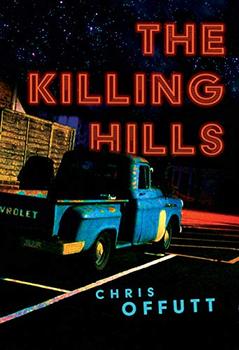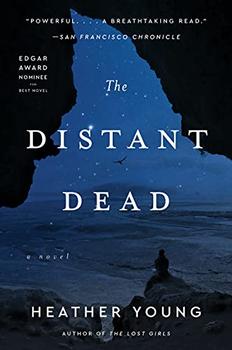Summary | Excerpt | Reading Guide | Reviews | Beyond the book | Read-Alikes | Genres & Themes | Author Bio

To crack open the cover of Paul Lynch's debut novel, Red Sky in Morning, and read the first paragraph is to hear the beginning notes of an old melody, resonant and echoing from an ancient landscape. The language seems to come from a time before the written word. It is sonorous, mystical and mythical, and with its forceful cadence, its vivid, startling imagery and word order, the reader is pulled immediately inside the dream:
Night sky was black and then there was blood, morning crack of light on the edge of the earth. The crimson spill sent the bright stars to fade, hills stepping out of shadow and clouds finding flesh. First rain of day and music it made of the land.
In his tome Orality and Literacy, Walter Ong says, "Written texts all have to be related somehow, directly or indirectly, to the world of sound, the natural habitat of language, to yield their meanings." This is, indeed, the world that Lynch inhabits in his work. It is the world, too, of Cormac McCarthy, and the comparison, particularly to McCarthy's earlier works, is inevitable
Red Sky Morning takes place in the peninsula of Inishowen, in County Donegal, Ireland. It is 1832, and Coll Coyle, "tight with rage," seeks out his landlord, Hamilton, who has capriciously evicted Coll's family from their home. In the ensuing confrontation, "something roiled in him like the white fever of river until his anger was foaming," and he kills Hamilton. "I canny pretend to myself nothing so I can't. I did it and so it is done," Coll tells himself. To save his life, he must flee, setting in motion the classic story of the hunter and the hunted.
Lynch does not spare the reader in the depiction of Hamilton's murder, or in his many other descriptions of violence, and yet his writing never crosses into the gratutitous. He describes a world that is violent by nature, and he describes it unflinchingly. As Alan Cheuse says in his NPR review, "Here, as is often the case in the work of our own Cormac McCarthy, the beauty and force of the language works congruently with the violence in the story."
The hunter in this case is John Faller, a hulking creature more archetype than human with, "his black boots shining and his cold eyes in their fixed position of smiling." Faller is a sociopath who kills for the pleasure of killing. He has a preternatural tracking ability, his presence, "like something colossal that moved outside the confines of measured time, a primeval heaving." The reader understands immediately that his shadow will be at Coll's back no matter where Coll flees, and that the journey of both men will lead toward a final and fateful meeting.
The book is loosely based on an historical event, the mystery of Duffy's Cut, that occurred during the building of the Philadelphia and Columbia Railroad [see Beyond the Book]. After a perilous and squalid journey in the steerage of a ship, this is where Coll finds himself, in Pennsylvania, commandeered by Phillip Duffy to perform the backbreaking task of leveling a cut for the railroad out of the unyielding stone of a hillside. Coll and the rest of the immigrants are forced to live like beasts on a subsistance diet, their water foul and contaminated. In this place, Coll becomes anonymous, known only by his place of origin, Inishowen. Through Coll, Lynch exposes the plight of the Irish immigrant in nineteenth century America: exploited, vilified, and violently persecuted. He also exposes the poverty and exploitation the Irish faced in their homeland that forced them to seek a better life in America. As with Lynch's literary predecessors such as Walter Macken, the reader understands that the outcome of the tale is inevitably and tragically tilted toward the exploiter.
That Paul Lynch honed his skills as chief film critic of Ireland's Sunday Tribune is evident in the cinematic quality of his writing. His work is vivid and visceral, scenes unfolding in rich sensory detail. But there is more to this book than a literary thriller or a Western narrative transposed to the bogs of county Donegaland then on to the wild hillsides of Chester county, Pennsylvania. Inside this archetypal tale, Lynch weaves a Gordian Knot of form and literary expectation. Without venturing into the land of spoilers, suffice it to say that with the twist of the ending, Lynch manages to turn literary form on its head, forcing the reader to question expectation in the same way that Coll's hunter, John Faller, questions our understanding of destiny. "You really have to think about that," Faller says. "All this nonsense about destiny being our own. How parochial. Every man, every nation, thinks they have control over a world that throws them about like a high wind." Paul Lynch, too, will toss you about like a high wind as you read. But you will surrender willingly, and your greatest disappointment as you turn the final page will be that are no more pages to turn.
![]() This review was originally published in The BookBrowse Review in November 2013, and has been updated for the
October 2014 edition.
Click here to go to this issue.
This review was originally published in The BookBrowse Review in November 2013, and has been updated for the
October 2014 edition.
Click here to go to this issue.

If you liked Red Sky in Morning, try these:

by Chris Offutt
Published 2022
A literary master across genres, award-winning author Chris Offutt's latest novel, The Killing Hills, is a compelling, propulsive thriller in which a suspicious death exposes the loyalties and rivalries of a deep-rooted and fiercely private community in the Kentucky backwoods.

by Heather Young
Published 2021
A young boy finds himself at the center of a murder mystery in this timely and twisty thriller from the author of the acclaimed The Lost Girls - a compelling and indelible story set in small town America that examines the burden of guilt, the bitter price of forgiveness, and the debts we owe our dead, both recent and distant.
Your guide toexceptional books
BookBrowse seeks out and recommends the best in contemporary fiction and nonfiction—books that not only engage and entertain but also deepen our understanding of ourselves and the world around us.